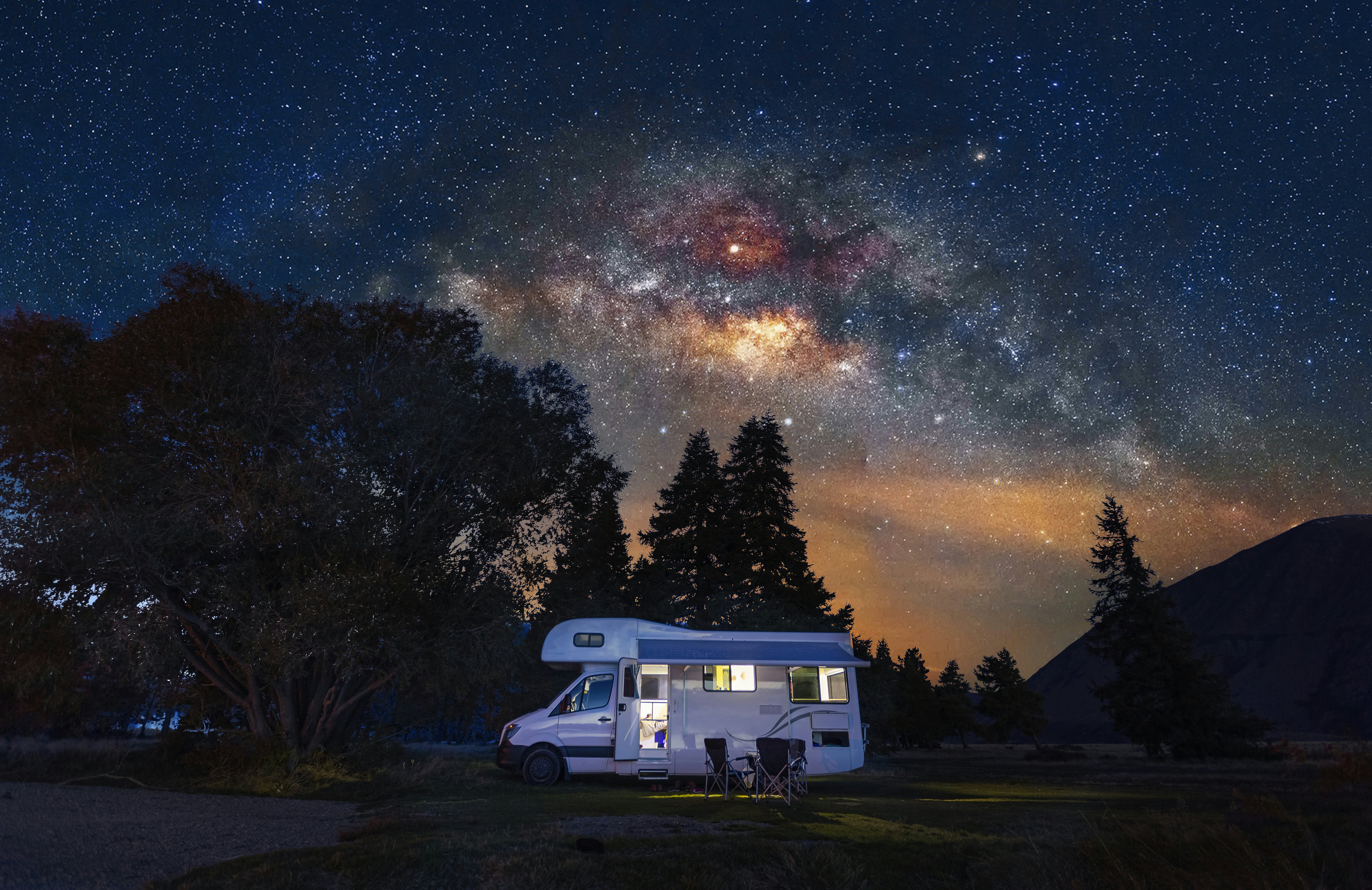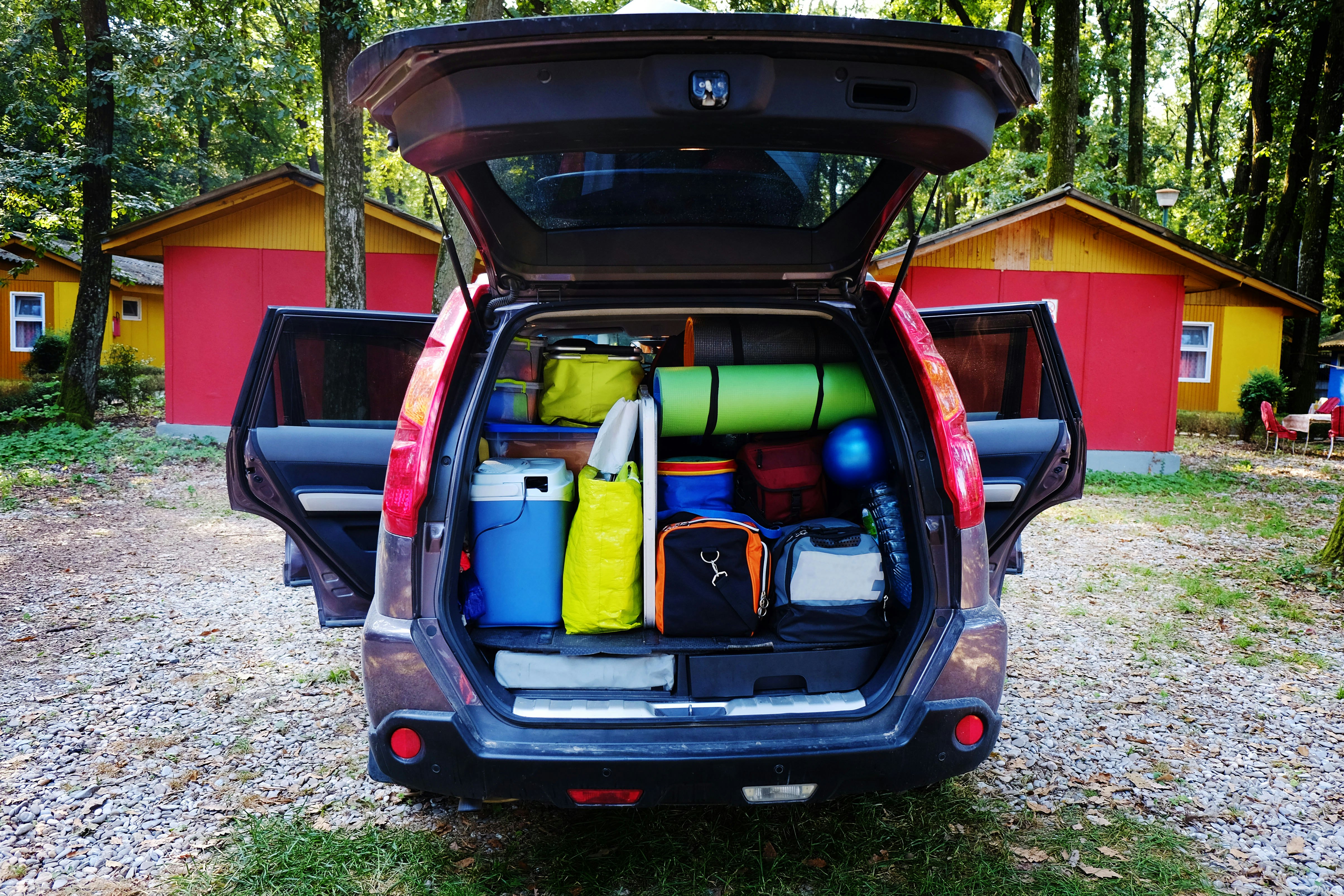
From rental cars to roadside stops - these are the new pandemic road trip essentials
Aug 13, 2020 • 6 min read

© Jamie Kingham / Getty Images
Leery of air travel, trains, and public transit as the COVID-19 pandemic continues, many would-be vacationers are returning to the time-honored road trip when they need a change of scenery. According to a recent survey by the US Travel Association and MMGY Travel Intelligence, 73 percent of respondents said they were likely to travel by car in the next six months, and 68 percent said they “continue to feel safest when traveling by personal vehicle.”
If you’re eying the open road, whether in your own vehicle or a rental, whether you’re planning on staying in hotels or cozying up in a glampground, we’ve got a few tips on how to plan a socially distanced road trip that will put your mind at ease.
Our editors independently select the best products to help you have amazing travel experiences. If you purchase through links on our site, Lonely Planet may earn a commission from the retailer.

Cars, vans, and RV rentals
If you’re planning to take your own car on your road trip, that simplifies your planning quite a bit. You’ll want to do the usual pre-trip maintenance, of course, like making sure you’re up to date on oil changes. Sanitize high-touch point areas like door handles, the steering column and controls, the stick shift, etc. It also doesn't hurt to keep wipes and paper towels close at hand in the cabin to keep up with cleaning along the way.
If you’re renting a car, you can also rest assured it’s been well-cleaned by the rental company – but following the same steps as if it were your own vehicle can add to your peace of mind. Most rental car companies have stepped up detailing between drivers, especially on high-touch points of the car, and have outlined their sanitary processes online. You can also research which car hire companies have contactless pickup (like Silvercar by Audi), curbside pickup (like Enterprise) or even delivery (like Hertz) to maximize social distancing.
Another option is to combine transportation and lodging by upgrading from a car to an RV, camper van, or travel trailer for your road trip. Services like Outdoorsy let you book the right camper for your needs, from modest travel trailers to big fifth-wheel rigs – and you might be surprised how affordable your options are.
Be sure to inquire about the car hire’s roadside assistance policies, or if you’re driving your own vehicle, consider signing up for a AAA membership in case you have a breakdown, flat tire, or run out of gas. Having someone you can call in case of mishap reduces your reliance on strangers, and organizations like AAA have a wealth of information on COVID-related travel restrictions state-to-state and even at popular destinations like theme parks.

Plan where to stay
There are a bevy of options when it comes to road trip lodging. You can seek out a social-distancing friendly hotel with features like an exterior entrance or included kitchenette, reducing contact with others. On the other end of the spectrum, RV or caravan sites are plentiful in both the United States and Europe and can easily be reserved through services like Campsited.
Many travelers have been opting for vacation rentals that give them exclusive access to a property, as well as the ability to cook on site and spread out. In fact, the US Travel Association and MMGY Travel Intelligence survey found travelers' interest in booking a vacation home is at an all-time high, with nearly a third of travelers considering this option.
If you’re considering camping, you’ll only need to book sites along your route and at your destination. Look especially for sites near water spigots or outhouses to make hand washing even easier, as well as sites that are larger or more removed from your neighbors.
No camping gear? No sweat – some services like Tentrr offer “Signature Sites” pre-prepped with almost everything you need. These privately hosted campsites have another advantage over the first-come-first-served and bookable campsites on public lands, too – the hosts offer a higher level of service during the pandemic, including making sure you have enough potable water (and in some cases, disinfecting supplies) to stay extra squeaky clean during your stay.

Plan your road trip gear
Depending on whether you’re going by car or RV, camping or staying in hotels, you might want to pick up a few pieces of gear to reduce the number of stops you need to make in public indoor spaces. A backpack cooler, for example is easy to transfer from car to stops along the way, isn’t as bulky as a hard-sided model, and can keep food and drinks cold for up to 24 hours. A small caddy for your emergency and cleaning supplies can also help you stay organized, and reusable silicon squeeze bottles can keep you flush with soap or hand sanitizer.
If you’re really committed to avoiding rest stops, a hitch-mounted toilet seat can turn your back bumper and a five-gallon bucket into a backcountry bathroom, as long as you don’t mind getting creative about where you park when nature calls. Meanwhile, a solar shower enclosure can double as a place to change clothes if you’re camping or using a travel trailer, and a jerry can with a built-in spigot can make washing your hands a snap, no matter where you roam.
Many road trippers opt to pre-plan their meals and pack all the necessary ingredients ahead of time to reduce grocery store trips or stops at restaurants that might increase their risk. That’s especially easy on shorter trips, but even if you’re on an extended vacation, you can make cooking from your car a snap. Depending on the type of trip you have planned, there’s a number of handy pieces of outdoor kitchen gear for car campers and cooking equipment for RVers that can make meal prep delicious at a distance.

Map your route
Once you’ve decided the vehicle you want to drive, what type of lodging you’re up for and what kind of gear you might need to stay comfortable along the way, it’s clearer what kind of route you should chart. For example, you’ll have a sense of whether you want to stick to interstates where you’re likely to find hotels, gas, and restaurants every few exits, or prefer to stick to scenic highways and country back roads that are more remote.
As you plot your route, you can start to plan ahead for the services you might need along the way, from RV hookups to manage your water and waste tanks to grocery stores. A little extra research before hand can help you narrow down your options even further, pinpointing the locations of stores that offer curbside pickup or businesses equipped with drive-thrus, as well as what the local regulations are for things like masks and curfews. You can also use resources like the John Hopkins US COVID-19 map or the New York Times maps for several countries around the world to figure out down to the county or province which paths are most likely to take you through high-risk areas.
You might also like
9 expert tips for a safe road trip during the pandemic
From stagecoach to motorcoach, a history of RVs in the USA
Travel's new threat is undertourism






















